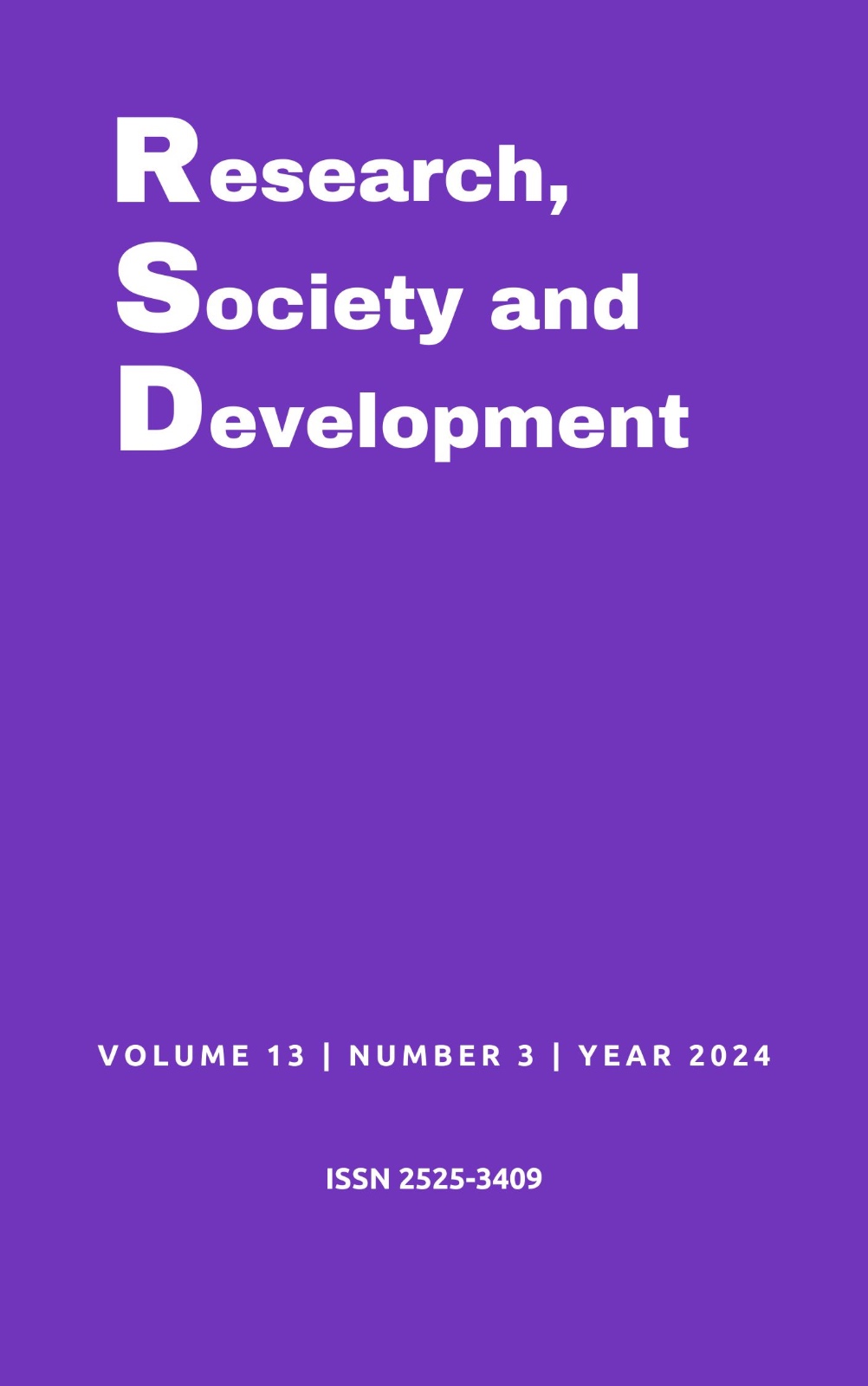Treatment management in young patients with type I Diabetes: Difficulties in self-care management
DOI:
https://doi.org/10.33448/rsd-v13i3.45351Keywords:
Adolescents, Self-care, Type 1 Diabetes Mellitus.Abstract
Objectives: to highlight the challenges that these young people face in promoting autonomy for self-care with limited accessibility to information, old medication application techniques, low adherence to treatment and obstacles in the family environment. METHODS: an integrative literature review was carried out during the period from July 2022 to February 2024, selecting a sample of 120 articles and after all selection, 6 scientific articles were highlighted for the production of the study. Discussion And Results: Furthermore, it was evident that in order to build patient autonomy in relation to their treatment, resulting in self-care, it is necessary for young people to be able to achieve the three pillars of self-care: cognitive autonomy; behavioral autonomy; and emotional autonomy. In view of the above, several factors end up harming the individual's personal development, such as a family that is too protective or shows poor adaptation to the patient's new reality. Access to information about the disease restricted to public health environments is also an important factor to be mentioned, the use of technologies to disseminate knowledge to this public in question is a reality that must be addressed.
References
Aguiar, L. d. (2021 ). Desenvolvimento e validação de uma tecnologia MHEALTH para a promoção do autocuidado de adolescentes com diabetes. Ciência & Saude Coletiva , 1691-1700.
Andrade, C. J. (2018). Relationship between bullying and type 1 diabetes mellitus in children and adolescents: a systematic review. Sociedade Brasileira de Pediatria , 510-518.
Banca, R. O. (2020). Estrategias para educar Jovens com Diabetes Mellitus Tipo 1 sobre insulinoterapia: revisão sistematica . Texto e Contexto Enfermagem, 1-21.
Batista, A. F. (2021). Adolescentes com diabetes mellitus tipo 1 e o seu processo de construção da autonomia para o autocuidado. Revista de Enfermangem Referencia , 1-8.
Carmi, H. K. (2023). Nuevas Insulinas en el tratamiento de la Diabetes Tipo 1. Revista Chilena de Pediatria , 278-285.
Costa1, G. S. (2022). Ações Educativas sobre Diabetes Mellitus na Educação de Jovens e Adultos em Rondonópolis, Mato Grosso. ELO - Diagnostico e Extensão , 1-8.
Henriquez, R. (2018). Impacto psicosocial de la diabetes mellitus tipo 1 en ninos, adolescentes y sus familias. Revista Chilena de Pediatria , 391-398.
Lisandra, V. (2021). Grado de información y hábitos de autocuidado del paciente adolescente y adulto joven con diabetis tipo 1. Universidad FASTA, 1-84.
Luna, N. M. (2023). Impactos do diabetes mellitus tipo 1 para as crianças e adolescentes: uma revisão integrativa. Congresso Brasileiro de Saude da criança e adolescente , 1-8.
Malheiro, M. I. (2024). Autogestão do diabetes na adolescência: experiência de jovens adultos e pais portugueses. Artigo Original , 1-8.
Matos, R. R. (2024). O uso de inteligência artificial no monitoramento glicêmico e insulinoterapia na diabetes mellitus tipo 1 uma revisão integrativa da literatura. Revista Contemporanea, 1-5.
Müller, V. M. (2024). Diabetes tipo 1 e suas principais complicações. Revista Acervo Saúde , 1-11.
Nass, E. M. (2019). Pespectiva de jovens com diabetes sobre intervenção educativa na rede social Facebook. Acta Paul Enferm., 390-397.
Pedrosa, I. (2023). Integrated care process in type 1 diabetes mellitus in children and adolescents: A quality improvement initiative. Journal of Healthcare Quality Research, 245-249.
Pozoa, A. H. (2023). Approach to patients with diabetes and obesity in primary care. Atención Primaria, 1-8.
Rodacki, M. (2022). Classificação da diabetes . Diretrizes da Sociedade Brasileira de Diabetes , 1-28.
Shalitin, S. (2021). Advanced Technologies and Treatments for Diabetes. Clinical Pratice, 76-82.
Souza, M. A. (2019). Qualidade de vida relacionada à saude de adolescentes com diabetes mellitus tipo 1. Revista Latino-Americana de Enfermagem , 1-10.
Souza, M. M. (2022). Caracterização da vivencia familiar de criançase adolescentes portadores de diabetes mellitus tipo 1: revisão narrativa. Society an Development, 1-9.
Venancio, J. M. (2017). Beneficios da participação em um acampamento no autocuidado de crianças e adolescentes com diabetes: percepção das mães. Escola Anna Nery, 1-7.
Victorio, V. M. (2018). Adolescentes com diabetes mellitus tipo 1: estresse, coping e adesão ao tratamento. Saúde e Pesquisa, 61-75.
Downloads
Published
Issue
Section
License
Copyright (c) 2024 Carlos Kaylan Souza Batista; Jose Olivandro Duarte de Oliveira; Yolanda de Melo Omena Lira; Bruno Delfino Abreu; Nathalie Félix Soares Arruda; Alexandrina Silveira Neta; Isadora Sousa Lins; Davi Saraiva Sarmento; David Sammuel Dantas Torres; Thales Vitor Brasil Araujo; Clara Jéssica da Costa e Silva; Bruna Sousa Lins

This work is licensed under a Creative Commons Attribution 4.0 International License.
Authors who publish with this journal agree to the following terms:
1) Authors retain copyright and grant the journal right of first publication with the work simultaneously licensed under a Creative Commons Attribution License that allows others to share the work with an acknowledgement of the work's authorship and initial publication in this journal.
2) Authors are able to enter into separate, additional contractual arrangements for the non-exclusive distribution of the journal's published version of the work (e.g., post it to an institutional repository or publish it in a book), with an acknowledgement of its initial publication in this journal.
3) Authors are permitted and encouraged to post their work online (e.g., in institutional repositories or on their website) prior to and during the submission process, as it can lead to productive exchanges, as well as earlier and greater citation of published work.


